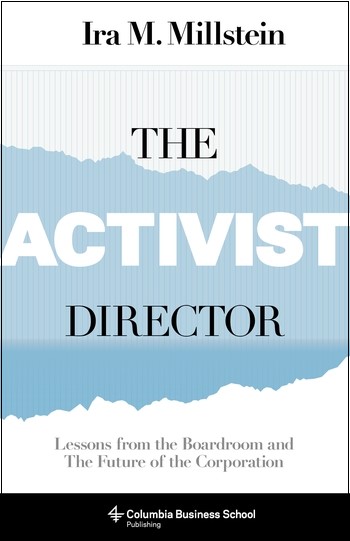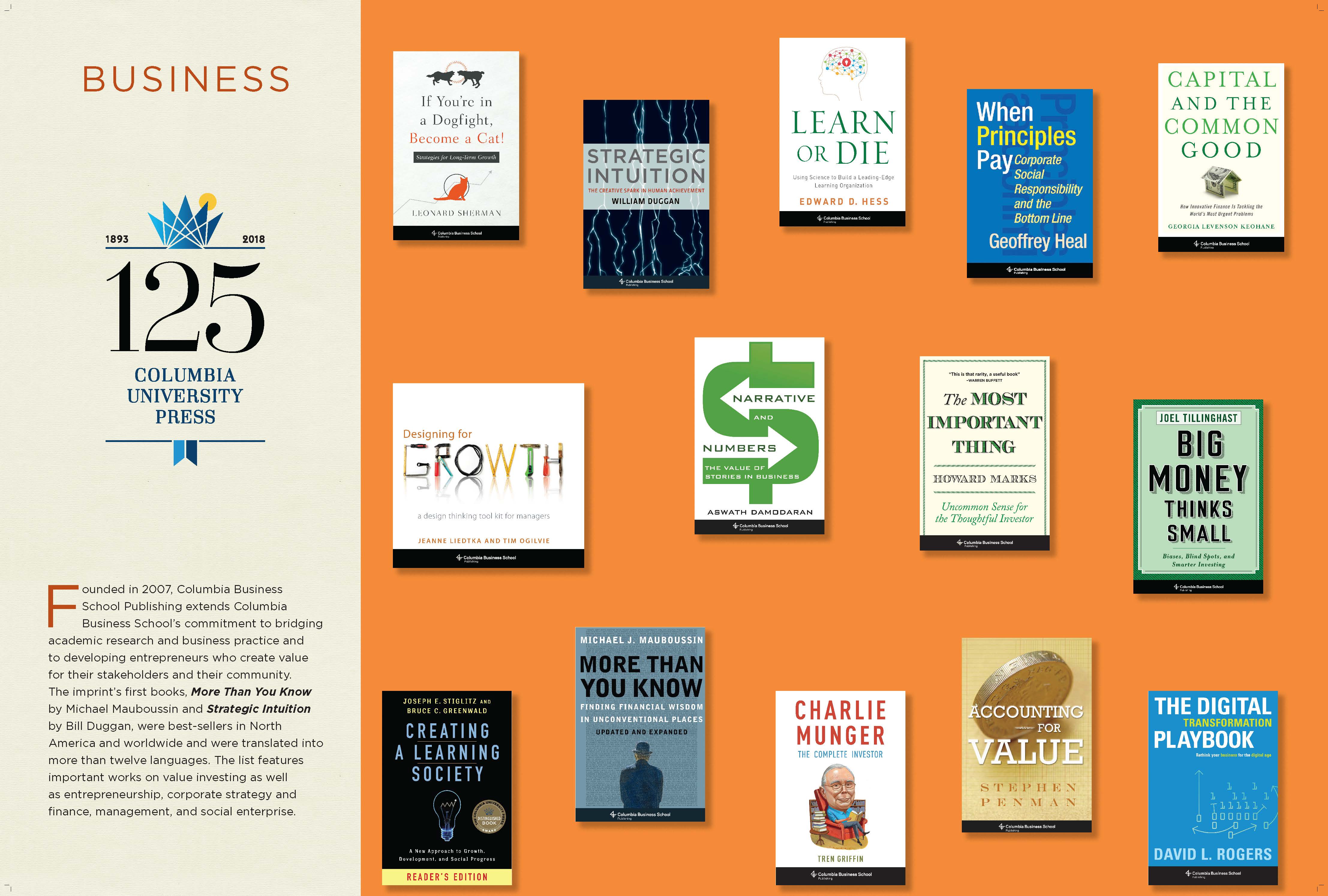Ira Millstein on The Activist Director – Why It’s Needed Now More Than Ever!

“No one has more experience with corporate boards, and insights into what makes them work, than Ira Millstein. The Activist Director reveals the good, the bad, and the ugly from some of the biggest management failures—and successes—in recent history.”
~ Michael Bloomberg, founder of Bloomberg LP and former mayor of New York City
This month, we’re featuring books and authors in our Columbia Business School Publishing (CBS) imprint. Today we have a guest post from Ira Millstein, author of The Activist Director. In this piece, Millstein reflects on his views on boardroom governance and calls to balance essential profit making with social needs and demands for all stakeholders.
Enter to win a copy of The Activist Director or any one title in the CBS imprint.
• • • • • •
With the recent publication of The Activist Director in paperback, I have reflected on how my own views towards boardroom governance have evolved as our now critical private sector has continued to gain momentum since the book’s original publication. The lessons and pragmatic suggestions offered in The Activist Director were based on my first-hand experiences spanning several decades counseling passive boards, deferential to managements and the short-term demands of the stock market. Progress was being made to replace passivity, but I believed a greater impetus was needed. I called for, and carefully spelled out, the crucial role of the “activist director” who would be mindful of his or her legal role as the epicenter of all corporate affairs, responsible for the best interests and future of the corporation.
This paperback is a timely renewal of the call for activism by directors, especially independent chairs and lead directors, a call by all stakeholders. This includes not only shareholders but also employees, suppliers, customers and the community from which the corporation draws its resources or that may otherwise be affected by its actions. The private sector – the corporation – now faces even a more pressing need to activate itself.
“This paperback is a timely renewal of the call for activism by directors . . .”
Recent events in almost every sector across the nation make one thing clear — the reputation of a corporation is fragile. Consequences arising from both ignoring stakeholder demands, and committing ethical violations, whether based on isolated events or systemic, can result in a company’s worst nightmare – its name in the headlines, immediate loss of customer confidence, falling stock prices, governmental investigations and shareholder attacks. The activist director, and board leadership, must be aware of these risks and proactively work towards mitigating them before, rather than after, they become a corporate crisis.
This need is hardly hypothetical. External pressures by diverse stakeholder groups, including activist shareholders and their advocates, are on the rise. This includes proxy demands for governance changes, based on for example: the #MeToo movement, gun safety, climate and environmental change, human rights, the opioid crisis, and the list grows. In short, the stakeholders’ interests, which boards can no longer afford to ignore, now must be balanced with immediate profits and short-term price swings.
A perilously splintered and politically oriented government, however, has receded from dealing with social needs and demands. It has been rendered incapable. Today it is even more fractured, not likely to restore anytime soon its traditional balancing of profit maximization with the needs and demands of all stakeholders.
“In short, the stakeholders’ interests, which boards can no longer afford to ignore, now must be balanced with immediate profits and short-term price swings.”
Yet, the corporation, and importantly, its directors, do not have the luxury of standing by and waiting for governmental forces to do the balancing. The corporation lives in the here and now – and with our government receding as the balancer, stakeholders now more than ever are looking to the corporation, and the activist director, to fill the vacuum.
I believe the activist director, selected as I suggest in my book, has the moral compass – and the courage – to do the “right thing”, beyond the simple self-interest of avoiding “risk”.







